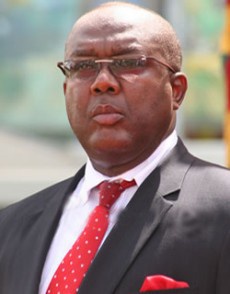Health News of Thursday, 14 June 2012
Source: GNA
Eastern Regional Minister cautions against unprotected sex

The Eastern Regional Minister, Mr Victor Smith has advised that people, especially women, guard against having unprotected sex to help reduce the spread of HIV/AIDS in the country.
Mr. Smith made the suggestion when members of the Eastern Regional AIDS Committee paid a courtesy call on him in his office in Koforidua, to brief him on the work of the committee, their successes and challenges.
Women constitute over 65 per cent of the population of People Living with HIV (PLHIV) in the country, according to available statistics.
The Regional Minister called for the translation of research findings from graphs and percentages into absolute figures to enable the affected communities to appreciate the dangers of the disease and support efforts of the government to minimize its spread.
Mr. Smith pledged his support to the committee and its efforts to help reduce the prevalence of HIV in the region further.
The Regional Co-ordinator of the National AIDS Control Program (NACF), Dr Sampson Ofori, explained that despite the claim by some herbalists that they had found a cure for the disease, no known cure had been found yet.
He said there were herbs which helped the body to fight opportunistic diseases but could not cure the AIDS disease.
Dr. Ofori said despite the reduction of the HIV prevalence in the region from over 7.9 per cent in 2002 to 3.6 in 2011, there were sentinel centres in the region which continued to record very high figures.
He mentioned those sentinel centres as Akim Oda, Begoro and Agomeda; and called for sustained efforts to help reduce the rate of infection in those areas.
The Technical Co-ordinator of the Ghana AIDS Commission in-charge of the Eastern Region, Ms Golda Asante, said one of the major challenges facing the committee was the refusal of some District Chief Executives and their Coordinating Directors to release the 0.5 per cent of their District Assembly Common Fund for HIV activities in their districts as stipulated by law.**










